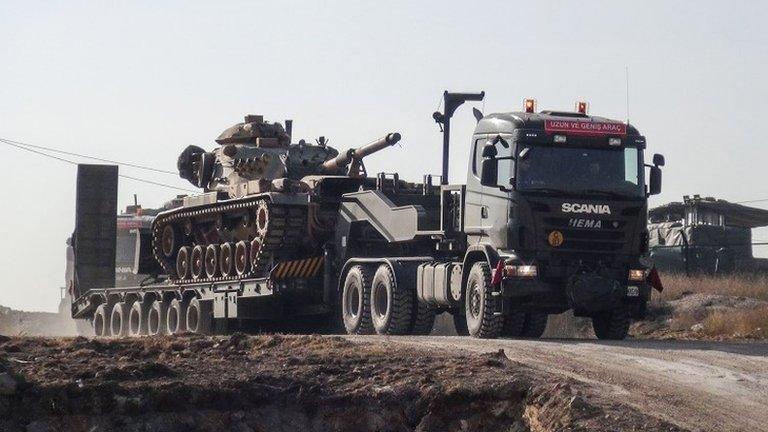Syria war: Turkey's Erdogan rejects French mediation offer
- Published
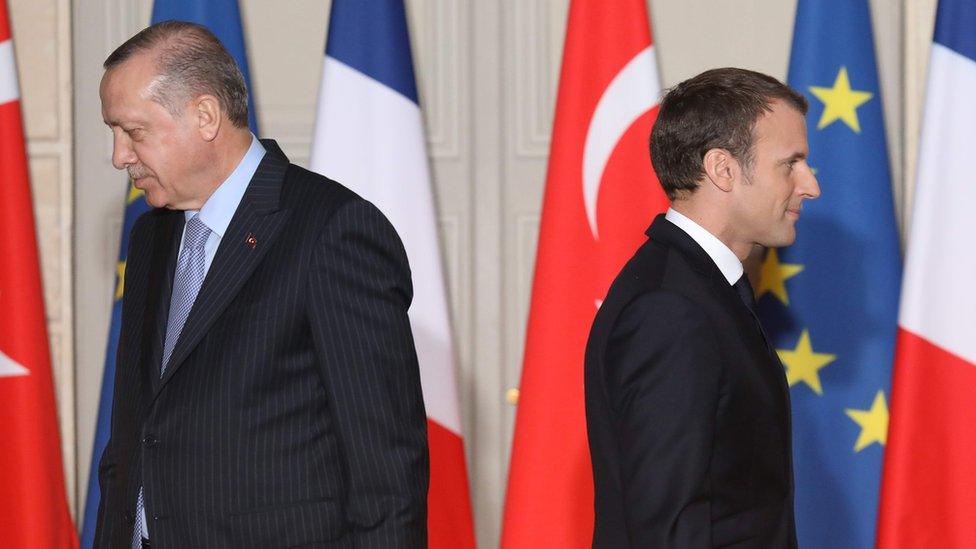
President Recep Tayyip Erdogan has rejected Emmanuel Macron's call for dialogue between Turkey and Kurds
Turkish President Recep Tayyip Erdogan has rejected France's offer to mediate in northern Syria, saying he is "saddened" by its position.
"We have no need for mediation," he said. "We are extremely saddened by France's... wrong stance on this."
Turkey is battling to drive out the Kurdish YPG militia, which it sees as an extension of the banned Kurdistan Workers' Party (PKK).
In a speech in Ankara, Mr Erdogan rebutted France's call for dialogue.
"Since when has Turkey been sitting down at the table with terror organisations?" he said. "You can sit down at the table with terror organisations but Turkey will continue its fight against terror."
France says the YPG has no direct organisational links to the PKK, which Turkey says is a terror group.
Earlier on Friday, a spokesman for Mr Erdogan said countries should take a "clear stance against all types of terrorism".
"We reject any efforts to promote 'dialogue', 'contact' or 'mediation' between Turkey and those terrorist organisations," the spokesman said.
What's behind the French offer?
President Emmanuel Macron had met members of the Kurdish-dominated Syrian Democratic Forces (SDF), including the YPG and expressed hopes for dialogue between Turkey and the militia.
His office said he had "paid tribute to the sacrifices and the determining role" of the SDF in the fight against the Islamic State (IS) group.
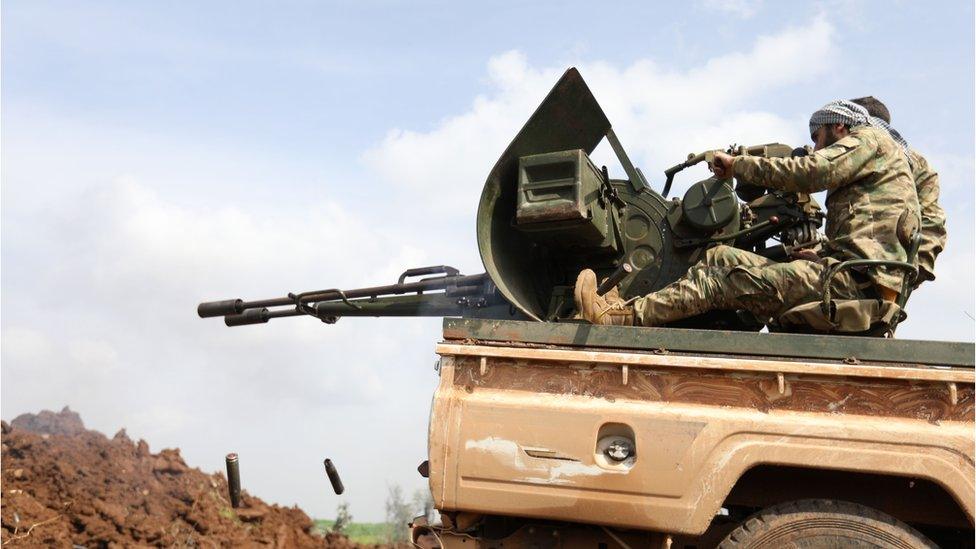
Turkish-backed Syrian opposition fighters in Afrin
The SDF is a key US ally in the fight against IS and the Kurdish YPG forms a core part of it.
France and the US have given the militia weapons and training to support its battle against IS.
The president said France would support the "stabilisation" of the security zone in north-east Syria to stop IS regaining strength.
Kurdish officials said Mr Macron had committed himself to sending more troops to the area but Paris declined to comment on that.
France has suffered a series of deadly terror attacks claimed by IS in recent years, including the Paris attacks which killed 130 people in 2015.
A week ago an IS sympathiser killed three people in a rampage in southern France, including a police officer who died after swapping places with a hostage.
How dangerous is the conflict in northern Syria?
Earlier this month Turkey ousted Kurdish fighters from the Syrian-Kurdish city of Afrin. Activists said 280 civilians had been killed, although this was denied by Ankara.
As many as a quarter of a million civilians are said to have fled the city.
Footage shows destroyed statues and flags being raised in the centre of Afrin
Turkey has since threatened to attack the SDF-controlled town of Manbij, which was taken from IS in 2016 - and where the US has stationed troops.
The Turkish national security council issued an ultimatum on Wednesday, saying it would act if Kurdish fighters did not leave immediately.
Elsewhere in Syria, Turkey said five soldiers were killed and seven wounded in an attack by the PKK in the south-eastern province of Siirt.
The attack, the deadliest by the PKK for months, is likely to be in revenge for Turkey's offensive in northern Syria, BBC Turkey correspondent Mark Lowen reports.
- Published30 March 2018
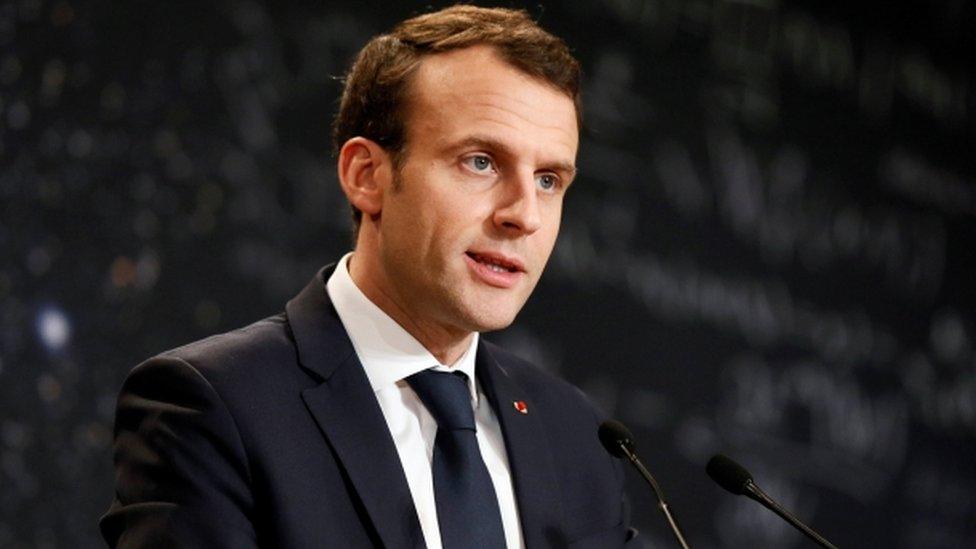
- Published2 February 2018
- Published15 October 2019
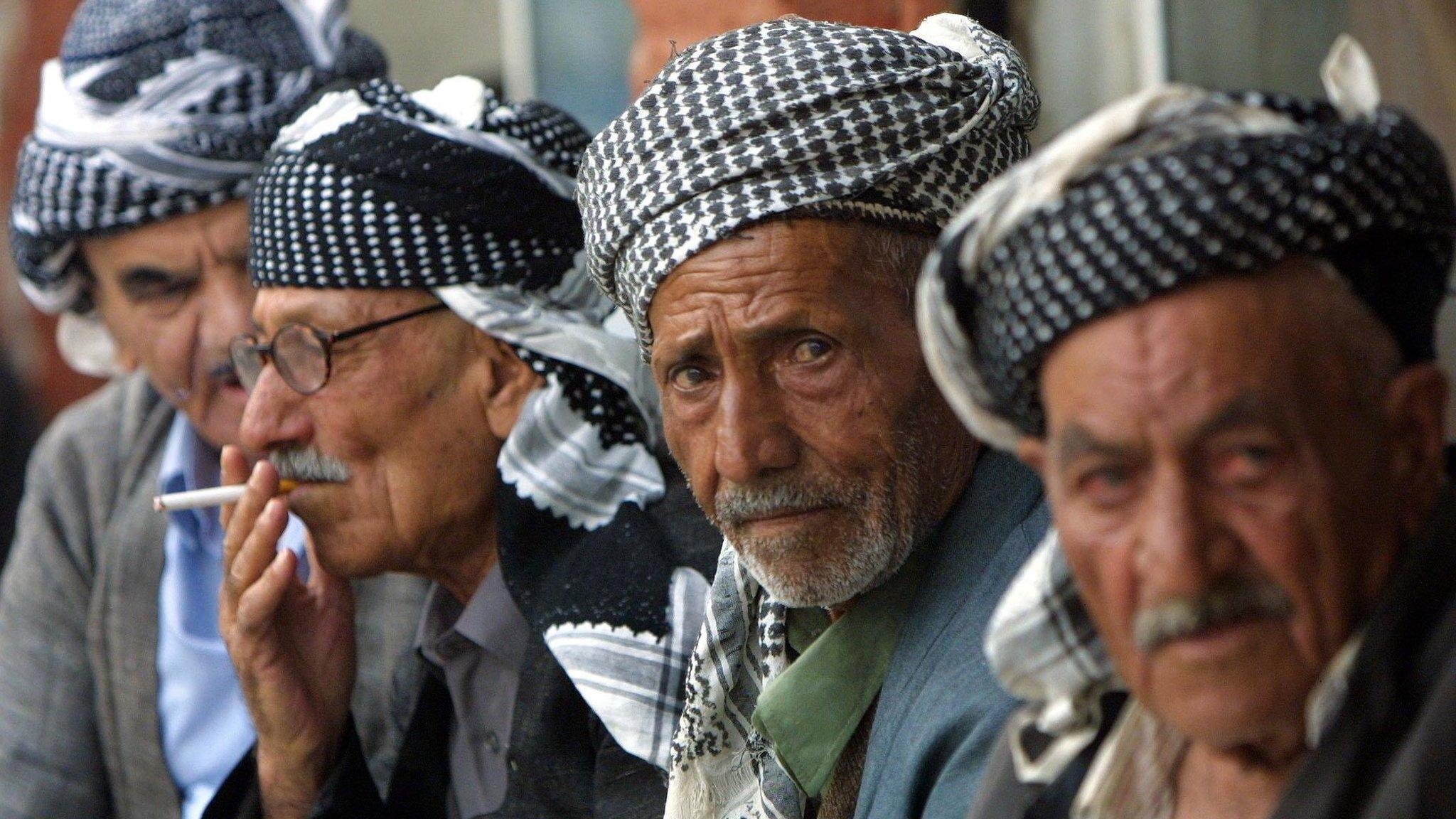
- Published2 May 2023

- Published18 March 2018
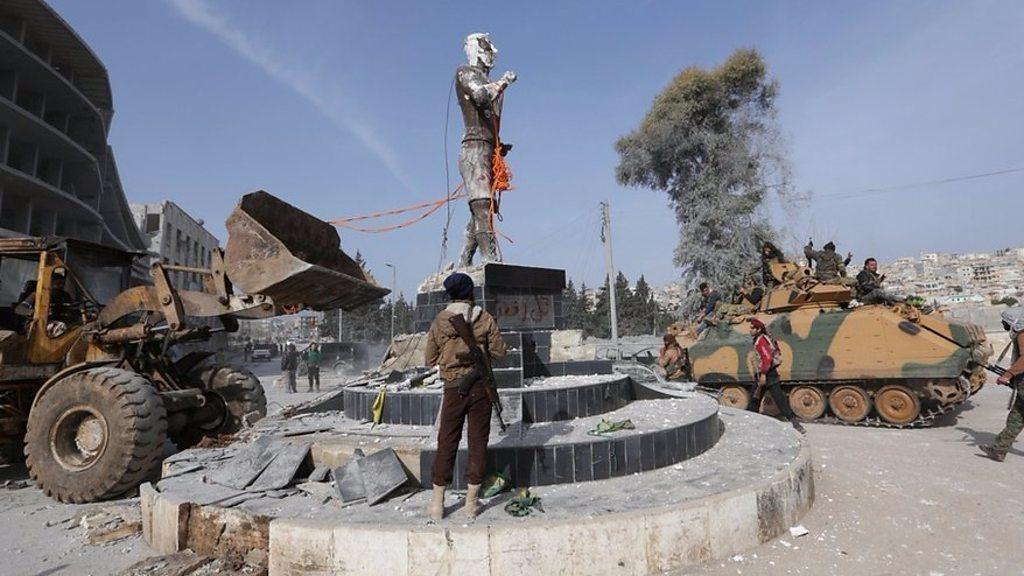
- Published24 January 2018
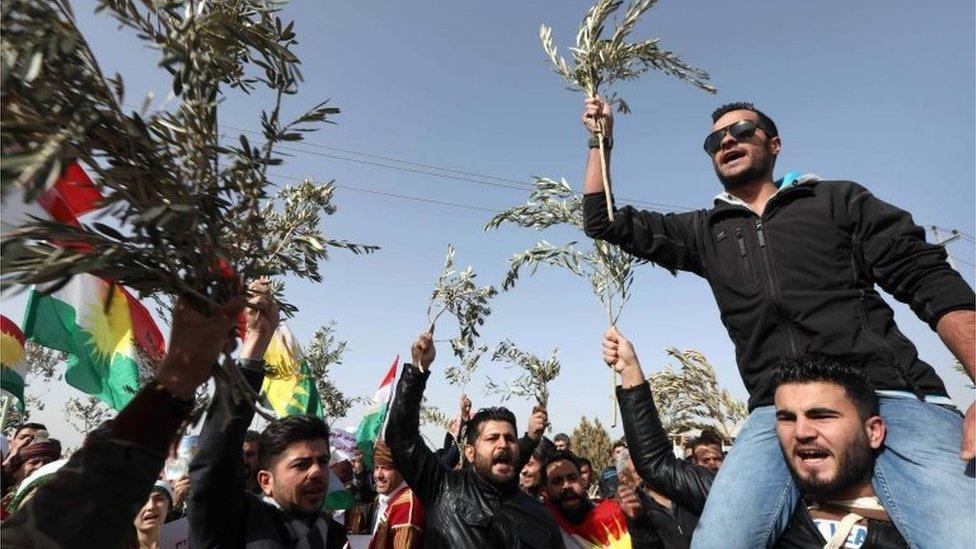
- Published17 January 2018
